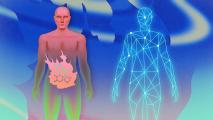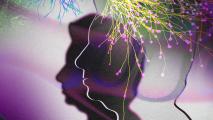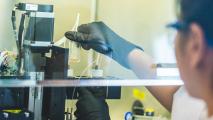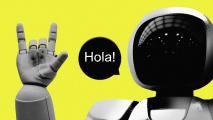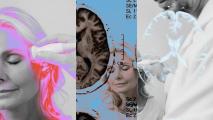
Biotech
Human history has been all but defined by death and disease, plague and pandemic. Advancements in 20th century medicine changed all of that. Now advancements in 21st century medicine promise to go even further. Could we bring about an end to disease? Reverse aging? Give hearing to the deaf and sight to the blind? The answer may be yes. And soon.
More
Autonomous auto racing promises safer driverless cars on the road
Autonomous racing is a testbed where competition spurs innovation and AI-controlled cars chart a course toward safer autonomous vehicles.
FDA approves weight-loss drug Wegovy to treat heart problems
The FDA has approved the use of Novo Nordisk’s popular weight-loss drug Wegovy to reduce the risk of certain major heart issues.
How frontotemporal dementia, the syndrome affecting Wendy Williams, changes the brain
In contrast to Alzheimer’s, in which the major initial symptom is memory loss, FTD typically involves changes in behavior.
How one streamer learned to play video games with only her mind
Perrikaryal uses an EEG to translate her brain activity into game commands, turning her mind into a video game controller.
Trapped in routine? Here’s how to “dishabituate” and rediscover joy
Neuroscientist Tali Sharot shares two ways to “dishabituate” yourself from your routine: take a break or make a change.
Digital twins are an effective new way to control your metabolism
Digital twins: pioneered at NASA, innovated at Tesla, and now available for your own body, in a smartphone app.
The hunger-boredom paradigm explained by scientists
True hunger builds gradually and can be satisfied by any source of food, but emotional eating (including eating out of boredom) is insatiable.
Implantable solar cells could one day help restore vision
Australian researchers are developing tiny implantable solar cells that could be inserted into the eye to help restore vision.
How cognition changes before dementia hits
Language-processing difficulties are an indicator of amnestic mild cognitive impairment (aMCI), a risk factor for dementia.
World’s first GM banana approved in Australia
Australian regulators have approved a GM banana modified to resist Panama Disease, a devastating fungal infection.
How our “junk DNA” led to humans being tailless
A CRISPR study out of NYU suggests that junk DNA likely led humans to evolve to be tailless millions of years ago.
Clinical trials can save more lives, and faster, with AI
The type of AI powering ChatGPT could help accelerate drug development by matching patients with clinical trials and vice versa.
Serotonin plays a key role in patience and impulse control, research says
Evidence suggests that there is in fact a neurological factor to the brain’s ability to control impulses and manage patience.
Cancer vaccine for dogs appears to nearly double survival rate
Yale researchers have developed a cancer vaccine for dogs that appears to increase their 12-month survival rate from 35% to 60%.
3D-printed skin could heal wounds with less scarring
Penn State scientists have 3D-printed skin directly on top of open wounds — an achievement that could improve reconstructive surgery.
Running or yoga can help beat depression, research shows – even if it’s the last thing you feel like
Exercise can be just as impactful in treating depression as therapy, but it matters what type of exercise you do and how you do it.
Robots who share your accent are more trusted, study shows
What makes a robot seem competent and trustworthy might be different for different people.
How scientists are using sound waves to hack the brain
Korean researchers have developed a new form of ultrasound brain stimulation that could help the brain form new connections.
The 3 myths of mindfulness
Mindfulness is hugely popular today, but one philosopher has argued that certain unchecked types of mindfulness are deeply flawed.
New “spiral” contact lenses let you see up close and far away
New spiral-shaped multifocal lenses bend light in a way that corrects problems seeing up close and far away, even in poor lighting.
Get inspired with the most innovative stories shaping the world around us.


















